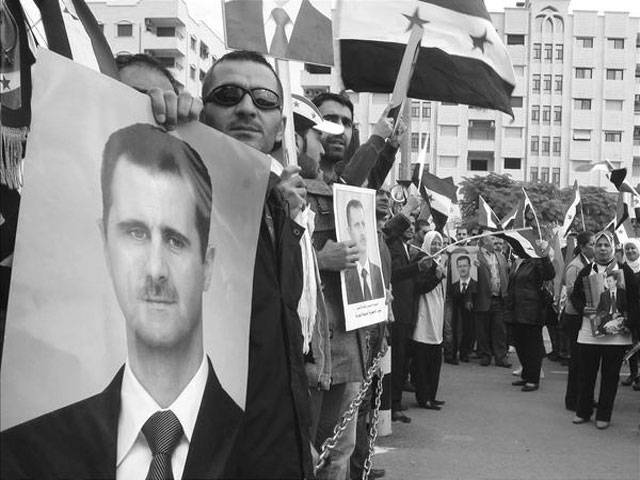Shashank Joshi
Syrian President Bashar al-Assad looks to be on the ropes. A countrywide uprising against his rule began in March, but it seemed manageable. Assad himself was seen as a reformist hemmed in by hardliners. In April, US Senator John Kerry called him “a man who understood the challenge of his country”. The government retained the support of many influential groups, including the Sunni business classes and many of Syria’s minorities. Outside powers, fearful of what would follow Assad, held back.
All that has changed. Across Syria, Friday prayers gave way to mass protests. They reached into Duma, a suburb of the capital Damascus. They shook Deraa in the south, a city that incubated this uprising, and Hama in the heartland. Newly arrived observers from the Arab League, overseeing the government’s compliance with a peace agreement, bore witness to the crackdown – in Homs, protesters placed a five-year-old child’s body on the observers’ car.
In fact, Assad is probably far from defeated. Of course, he is straining under the pressure. His regime has released more than 700 prisoners and pulled tanks out of Homs. Oil export and tourism revenues have collapsed. Tax revenue next year will fall by half, and the government is severed from world credit markets. The squeeze on public spending will anger many civil servants, but printing money will result in destructive inflation.
At the same time, Assad is in a better position than Colonel Gaddafi was earlier this year. The Arab League’s observer team is led by a Sudanese general who oversaw some of that country’s worst atrocities in Darfur – little surprise that he said he found nothing to concern him in Homs. Russia, which sells arms to Syria and enjoys access to a naval base there, has suggested a condemnatory UN resolution – but placed equal blame on both regime and rebels. And although the Syrian army is facing a major problem of defections, there remains a core of loyal and well-armed units led by Alawites, the sect to which the Assad dynasty belongs.
Even if the Arab League imposes harsher sanctions, who will police them? European members of Nato will spend next year consumed with their own problems. In the US, elections mean a risk-averse White House. Turkey is best-placed, but knows Assad could hit back, possibly through Kurdish rebels. The Arab League’s mission will end in acrimony, and firmer Western support for Syria’s opposition will follow. The question will then be whether Assad hangs on for months – or years.
Shashank Joshi is an associate fellow at the Royal United Services Institute
–The Independent
Friday, April 19, 2024
Pressure mounts but Assad could hang on for years

8:27 AM | April 19, 2024
8:09 AM | April 19, 2024
Formula 1 returns to China for Round 5
9:05 PM | April 19, 2024
Germany head coach Julian Nagelsmann extends contract till 2026 World Cup
9:00 PM | April 19, 2024
IMF urges Italy, France to spend less, Germany to loosen purse strings
8:57 PM | April 19, 2024
PM calls UAE president, admires Emirati leadership's response to recent Dubai rains
8:55 PM | April 19, 2024
Church leader calls for including Christians in Gandhara Corridor
8:50 PM | April 19, 2024
A Tense Neighbourhood
April 19, 2024
Dubai Underwater
April 19, 2024
X Debate Continues
April 19, 2024
Hepatitis Challenge
April 18, 2024
IMF Predictions
April 18, 2024
Kite tragedy
April 19, 2024
Discipline dilemma
April 19, 2024
Urgent plea
April 19, 2024
Justice denied
April 18, 2024
AI dilemmas unveiled
April 18, 2024
ePaper - Nawaiwaqt
Advertisement
Nawaiwaqt Group | Copyright © 2024





